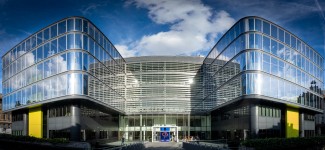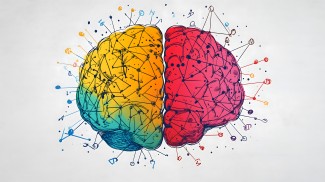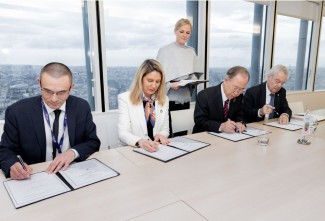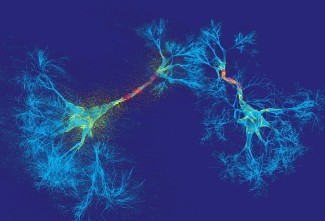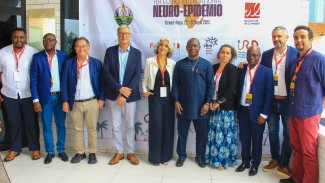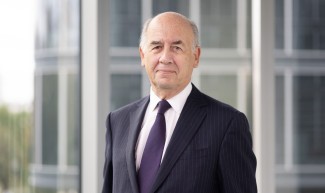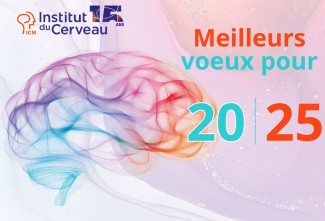The story of Paris Brain Institute has its roots in the very site on which it was built: Pitié-Salpêtrière Hospital in the 13th arrondissement of Paris, a place of huge symbolism and great destinies.
As the birthplace of modern neurology and the site of Jean-Martin Charcot’s pioneering work, Pitié-Salpêtrière Hospital boasts a rich and prestigious heritage in neurology and neurosciences.
This tradition has continued to the present day, with the site hosting numerous research teams over the years, led by renowned scientists from all over the world.
A team working together to build the project (2003-2008)
In 2003, a series of discussions between Gérard Saillant, Professor of Orthopedic and Trauma Surgery, Jean Todt, at the time CEO of Ferrari’s Formula 1 racing division Scuderia Ferrari and then of Ferrari itself, and Yves Agid and Olivier Lyon-Caen, Professors of Neurology and Directors of the Neurology Department at Pitié-Salpêtrière Hospital, led to the birth of the Institut du Cerveau et de la Moelle Epinière (ICM) (the Brain and Spine Institute) as it exists today.
The creation of the ICM, which became Paris Brain Institute, was a response to a fundamental social problem.
The significant increase in life expectancy has considerably increased the frequency of brain and spinal cord diseases, making them a real public health issue.
The aim of the Brain and Spine Institute would be to respond to this major challenge facing society in the 21st century through a highly innovative concept in neuroscience research.
This new international research center would be based in Paris at Pitié-Salpêtrière Hospital. It would bring together researchers from all over the world, offering them platforms and facilities at the cutting edge of technological research. The approach would be multidisciplinary, aiming to bring together patients, doctors, researchers and entrepreneurs at a single site. The objective of this center would be to develop new treatments to cure neurological and psychiatric disorders and repair spinal cord injuries.
To implement this project, Gérard Saillant and Jean Todt mobilized a number of figures from a variety of backgrounds. Each contributes his or her own expertise. Driven by a shared vision, these founding members worked together to develop the general structure and approach for the ’Institut du Cerveau et de la Moëlle Épinière (ICM). The non-profit ICM Foundation with recognized charitable status was created by decree on September 13, 2006.
The founders of Paris Brain Institute
Numerous figures from a wide range of backgrounds had roles in the creation of Paris Brain Institute, each contributing his or her own specific expertise.
- Gérard Saillant, Honorary Professor of Orthopedic and Trauma Surgery, President of Paris Brain Institute
- Jean Todt, UN Secretary-General’s Special Envoy for Road Safety, Vice President of Paris Brain Institute
- Yves Agid, Honorary Professor of Neurology and Neuroscience
- Luc Besson, film director
- Louis Camilleri, former CEO of FerrariJean Glavany, former Minister
- Maurice Lévy, Honorary President of Publicis Group, Joint President of Paris Brain Institute Friends Committee
- Olivier Lyon-Caen, Professor of Neurology, former Director of the Nervous System Diseases Division at Pitié-Salpêtrière Hospital
- Jean-Pierre Martel, LawyerLindsay Owen-Jones, Honorary President of L’Oréal and of Paris Brain Institute Friends Committee
- David de Rothschild, Honorary President of the Supervisory Board of Rothschild & Co
- Michael Schumacher, former Formula 1 driver
- Serge Weinberg, President of Weinberg Capital Partners and Paris Brain Institute Treasurer
Numerous personalities from diverse backgrounds have contributed to the creation of Paris Brain Institute, each bringing their own expertise to the table.
From the outset, the founders of Paris Brain Institute worked in close cooperation with four public partners: Assistance Publique-Hôpitaux de Paris (AP-HP) (the university hospital trust operating in Paris and its surroundings), the CNRS (the French National Center for Scientific Research), the INSERM (the French National Institute of Health and Medical Research) and Sorbonne University (formerly Pierre and Marie Curie University).
They are joined in this ambitious project by other public partners and local authorities that also provide funding or support: the Ministry of Education and Research, the Île-de-France Region, the Paris City Council and the Caisse des Dépôts et des Consignations (the public financial institution responsible for investing French public funds and assets).
Foundation stone and construction of Paris Brain Institute (2008-2010)
The “foundation stone” of Paris Brain Institute was laid on a plot of land in the heart of Pitié-Salpêtrière Hospital-AP-HP in the 13th arrondissement of Paris on June 18, 2008 by the founders, public partners and the actress and ambassador of the Institute, Michelle Yeoh, in the presence of Valérie Pécresse, Minister of Education and Research, Bertrand Delanoë, Mayor of Paris, Jean-Paul Huchon, President of the Île-de-France Regional Council, and many other important figures.
The foundation stone for Paris Brain Institute is laid.
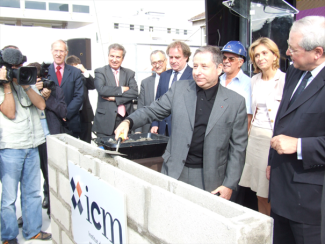
The ambassadors of Paris Brain Institute
- Michelle Yeoh, actor, ambassador of Paris Brain Institute
- Jean Reno, actor, ambassador of Paris Brain Institute
The architect Jean-Michel Wilmotte was commissioned to draw up the plans and construct the building. He designed a building in the shape of an H, reminiscent of the two hemispheres of the brain, with glass façades and a flexible, modern and functional interior structure, so that the layout of the spaces could be adapted to future research needs.
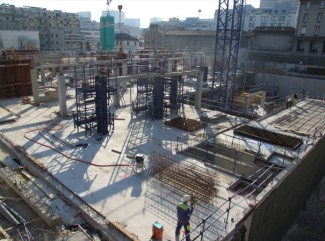
The laboratories are set up based on an open-space concept around centralized and shared core facilities (technology platforms). Flows of people move through peripheral passageways where they pass each other, meet and exchange ideas.
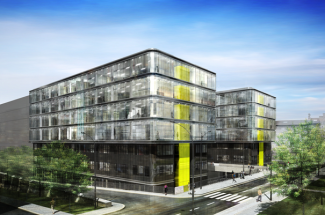
Arrival of the first teams and inauguration (2010)
Construction of the building was completed in April 2010 and it was inaugurated on September 24 of the same year.
When it opened, the building provided a single centralized location for a number of neuroscience, neurology and psychiatry research teams that had previously been scattered across the Pitié-Salpêtrière Hospital-AP-HP site. Recruitment of new international research teams then began.
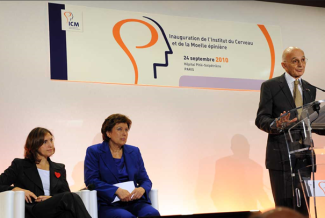
The ICM is renamed Paris Brain Institute (in 2020)
In just a few years – and indeed less than a decade – the ICM became one of Europe’s leading neuroscience research centers, demonstrating the strength of its concept based on a solid partnership between the public and private sectors.
On the strength of its initial results, and with a view to continuing its development using a simpler, clearer approach, the Institut du Cerveau et de la Moelle Epinière (the Brain and Spine Institute) was renamed Paris Brain Institute in 2020, although this change did not represent a move away from its activities in spinal cord research.
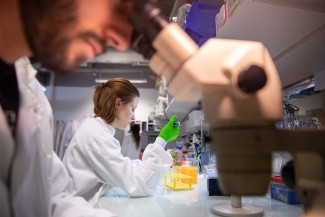
Ambassadors of the Paris Brain Institute
- Olivier Goy - entrepreneur and co-founder of Fintech October

